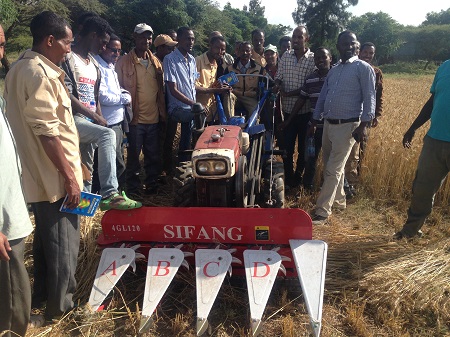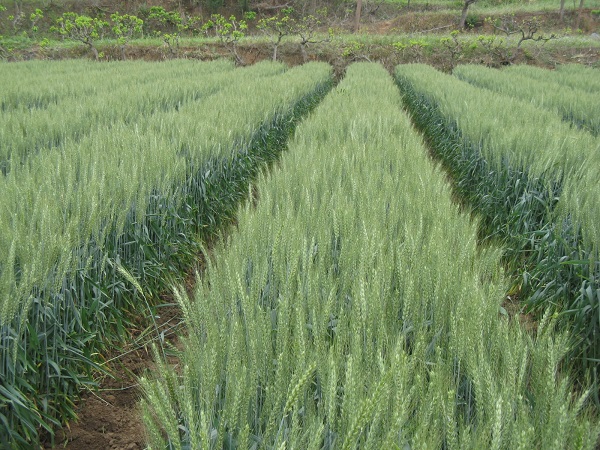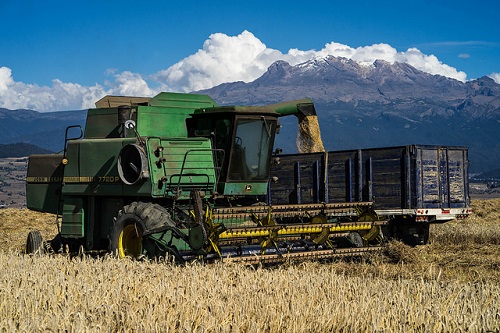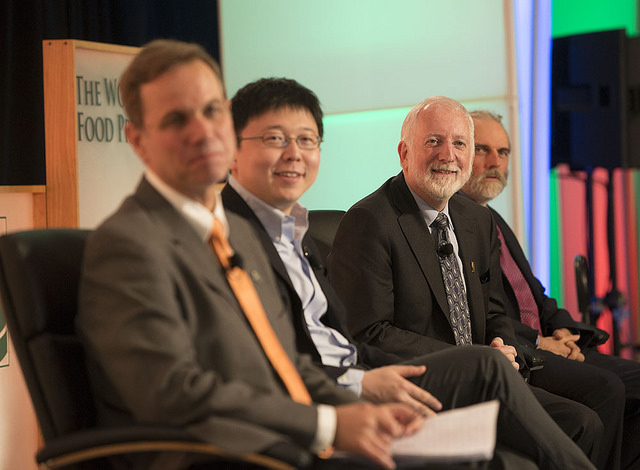Innovations
Working with smallholders to understand their needs and build on their knowledge, CIMMYT brings the right seeds and inputs to local markets, raises awareness of more productive cropping practices, and works to bring local mechanization and irrigation services based on conservation agriculture practices. CIMMYT helps scale up farmers’ own innovations, and embraces remote sensing, mobile phones and other information technology. These interventions are gender-inclusive, to ensure equitable impacts for all.
Breaking ground: Mike Olsen uses new technology to improve farmer’s yields
 Innovations
Innovations
Mike Olsen, upstream research coordinator for CIMMYT maize program, works with scientists to use new technologies to increase breeding program efficiency and genetic gain.
Building small scale mechanization capacity of service providers in Ethiopia
 Capacity development
Capacity development
A CIMMYT project aims to increase soil fertility through direct row planting of major crops in Ethiopia, such as maize, wheat and teff.
Overcoming gender gaps in rural mechanization
 Gender equality, youth and social inclusion
Gender equality, youth and social inclusion
A new publication details current gender gaps in rural mechanization in Bangladesh, and outlines plans to overcome these challenges.
Innovations for cross-continent collaborations
 Innovations
Innovations
Harinder Sidhu, Australian High Commissioner to India, visits Borlaug Institute for South Asia and climate-smart village.
USAID delegation visits CIMMYT Pakistan office
 Innovations
Innovations
A delegation of representatives from the USAID’s Mission for Economic Growth and Agriculture in Pakistan visited the National Agricultural Research Center to see the interventions by the Agricultural Innovation Program led by CIMMYT.
New Publications: Goat grass gives wheat breeders an edge
 Innovations
Innovations
A new commentary published today in Nature Plants highlights the importance of an ancient grass species for wheat breeding.
CIMMYT research publications sow seeds in academic world
 Innovations
Innovations
CIMMYT scientists produce a lot more than just improved maize and wheat varieties.
Breaking Ground: Leonard Rusinamhodzi on innovating farming systems for climate change
 Climate adaptation and mitigation
Climate adaptation and mitigation
Leonard Rusinamhodzi works with African farmers to innovate farming systems in the face of climate change.
How smarter financing can boost Nepal’s seed sector
 Innovations
Innovations
Nepal’s push to grow its seed sector is expanding to banking, with new financial measures expected to benefit seed companies across the country.
Smallholder farmers to gain from targeted CRISPR-Cas9 crop breeding
 Innovations
Innovations
Gene editing technology could revolutionize the way scientists breed high-yielding drought, disease and pest resistant, high quality plant seeds, greatly reducing the time it currently takes to develop new varieties
New book highlights sustainable agriculture success story in Mexico
 Innovations
Innovations
A new book from Columbia University Press offers social sector organizations a how-to guide on applying new and creative methods to solve complex problems.
New USAID seed and fertilizer initiative launched in Nepal
 Innovations
Innovations
Nepal will benefit from a new project that will strengthen the country’s seed and fertilizer sectors, boost farmer income and increase the country’s food security.





